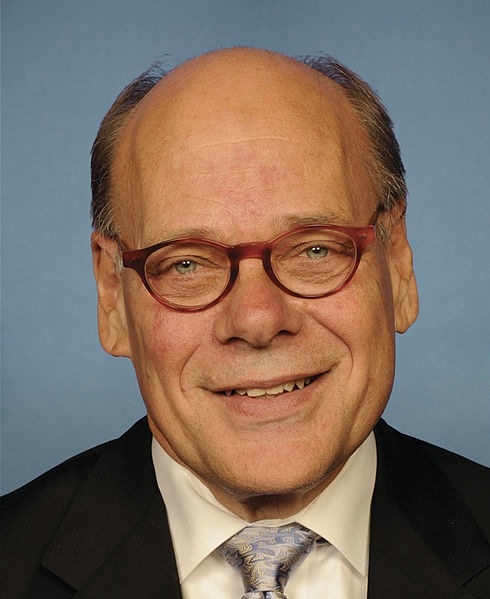The overlooked fight against voter ID in Tennessee

Often overlooked in discussions around state voter ID law battles is Tennessee.
North Carolina and Texas currently warrant attention given the lawsuits that have been filed there -- both involving the U.S. Department of Justice -- but Tennessee has also experienced its own share of voter ID drama. It is currently among the four states that the National Conference of State Legislatures classifies as "strict photo ID" states.
Unlike North Carolina and Texas, Tennessee wasn't covered by Section Five of the Voting Rights Act before the U.S. Supreme Court deactivated it earlier this year, meaning Tennessee had been able to make election law changes without submitting them to the federal government to review for possible racial discrimination. Photo voter ID became the law of the state in May 2011.
But outside of the spotlight, there's a fight going down over Tennessee's voter ID law. Public officials and activists have mounted court challenges and hosted rallies against the law since it was passed. The mayor of Memphis found a unique loophole by arguing that a library card should qualify to vote since it is issued by an entity of the state -- the city-run libraries. He was able to keep that loophole open for last November's presidential elections.
Over the last couple of weeks, two major developments have occurred in Tennessee's fight over voter ID that have implications not only for the state but also for the nation: The state supreme court ruled that the voter ID law was constitutional, and Congressman Steve Cohen (D-Tenn.) introduced legislation to expand access to voter ID cards where needed.
First the bad news: On Oct. 17, the Tennessee Supreme Court affirmed the legislature's decision to close the library card loophole and also upheld the constitutionality of voter ID. That ruling might make it difficult for voter ID law challenges in other states, as those courts may look to this opinion as a reference point for their own.
The overall score on these state court challenges are mixed. State courts in Missouri and Wisconsin, as just two examples, have shot down voter ID laws, while Georgia courts upheld theirs. A Pennsylvania state judge originally upheld its voter ID law but that decision was appealed; the law currently hangs in limbo while awaiting a final decision from the state.
The ultimate reference case is Indiana's Crawford v. Marion County Election Board. That went through the federal 7th Circuit Court of Appeals, which upheld it, and then the U.S. Supreme Court, which affirmed the lower court’s decision. The 7th Circuit judge who issued the opinion, Richard A. Posner, has since stated that he has no confidence he made the right decision. And yet the Tennessee court cited the Crawford ruling in making its own decision on voter ID.
As with every other state that passed a voter ID law, Republican lawmakers in Tennessee said voter ID was needed to combat voter impersonation fraud while acknowledging that little to none existed. In the Tennessee case, City of Memphis v. Hargett, Chief Justice Gary Wade ruled that the state did not have to prove voter fraud existed to pass a voter ID law because, in his legal opinion, asking for voter ID is not a burden. It was estimated at the time of the bill’s passing that close to 173,000 Tennesseans didn’t have the ID required by the law.
Meanwhile, there have been a number of other election administration problems In Tennessee that appear to continue to go unaddressed, like faulty voter machines and voters being turned away at the polls after appearing on "inactive" voter lists. These problems have infuriated Cohen, who represents Memphis. At a press conference last November when the problems were publicized, he said, "This all started with Photo-IDs. Now we come to election day and the inability of the bureaucracy to properly work. I think it's intentional."
Cohen has been outspoken about his opposition to voter ID laws -- not only in his state but in others as well. When the U.S. Supreme Court effectively struck down Section Five of the Voting Rights Act by killing the coverage formula, he spoke out even though his state was not subjected to to Section Five. “Make no mistake," he said, "the recent ruling by the Supreme Court that gutted an essential provision of the landmark Voting Rights Act was an affront to civil rights in this country.”
When U.S. Attorney General Eric Holder filed a lawsuit against North Carolina’s voter ID bill, Cohen applauded, saying, "While Congress works to address the Supreme Court’s decision, I am glad that Attorney General Holder is not waiting for even more discrimination against minorities before using every tool at his disposal to aggressively fight for the civil and human rights that we fought for decades to obtain."
Which leads to the other major development out of Tennessee that's possible good news: On Oct. 23, Cohen introduced a bill called the Voter ID Accessibility Act in response to laws he says are "widely regarded as a means of voter suppression rather than of fraud prevention."
“The goal of restrictive state voter ID laws is -- plain and simple -- to make it harder for minorities, the elderly, and young people to exercise a Constitutional right that we in this country hold sacred: the right to participate in the democratic process by casting a ballot," said Cohen.
His bill would amend the National Voter Registration Act by compelling government public welfare offices to provide photo voter ID cards, in addition to the voter registration forms they are already required to provide.
Cohen said in introducing the bill, "The history of our nation is one of expanding access to voting, not restricting it -- and voter ID laws are steps in the wrong direction."
His bill is one of only a few pieces of legislation introduced in Congress over the past two years to address the expanding reach of laws that restrict voters' access to the ballot.
